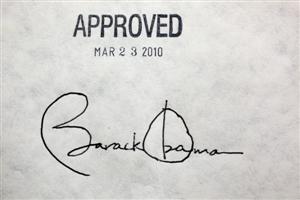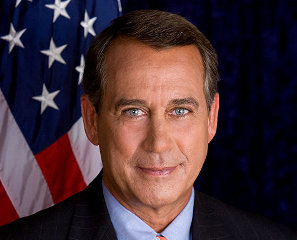
The Center on Budget and Policy Priorities, a group with a reputation for producing materials that are balanced, authoritative, and accessible to non-specialists, has released a study of the claims central to the debate on repealing health reform that will reopen in the House this week. The short answer is that the CBO analysis is deemed accurate while Republican claims to the contrary are deemed inaccurate.
At issue is the pending bill to repeal “job killing” health care reform, a bill who’s very name contains an accusation. Rep. Steve King (R-IA), a leading proponent of repeal, says “This is the most important thing we can do, jobs and the economy have to follow through, but we can’t fix this economy unless we first repeal Obama care.” But is that true?
Much of the rhetoric surrounding this debate has been quite partisan. Yet a surprising element in this round has been the claim by Speaker Boehner that the CBO analysis of the health care reform act’s financials was merely their “opinion,” and he implied that Democrats had forced CBO to produce misleading figures, saying that “CBO can only provide a score based on the assumptions that were given to them.” On that count, the Center on Budget and Policy Priorities says:
- In fact, over several decades, the House and Senate Budget Committees, along with presidential administrations of both parties, have developed procedures that CBO uses to prepare cost estimates. In estimating the cost of health reform or its repeal, as with any estimate, CBO uses these longstanding, bipartisan procedures — not assumptions specified by the sponsor of the legislation. Thus, Speaker Boehner’s charge is flatly incorrect.
- Up until now, congressional leaders of both parties have acknowledged CBO’s professionalism and recognized its critical role as a neutral arbiter in budget matters. They have accepted CBO’s cost estimates, even when those estimates have proved inconvenient for their side. This wholesale attack on, and rejection of, a CBO estimate for a major piece of legislation by the leadership of the House or Senate is unprecedented.
As Senator Daniel Patrick Moynihan said, “Everybody is entitled to their own opinions, but not their own facts.” A recent USA TODAY/Gallup Poll determined that 83% of the public say it’s extremely or very important for House Republicans to pass legislation that both parties can agree on. Further, 70% of Democrats say the president should work to pass legislation Democrats and Republicans can agree on, even if it’s not what most Democrats want.
The public wants the government to cooperate together. But this cannot happen if there is not at least agreement on the basic data related to an issue. Debate the implications. Debate the ideology. But stop wasting everyone’s time debating the facts.


